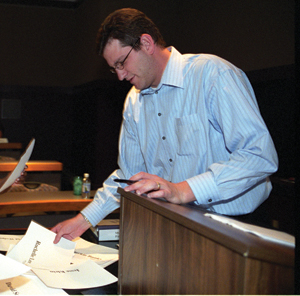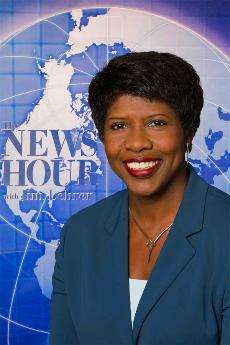 Sam Guzik
Sam GuzikWhile Washington University ranked 10th for food quality in the 2008 Princeton Review, with new food options coming in the Danforth University Center, the school may receive a higher ranking in the future.
The food options in the Danforth University Center (DUC) will focus on providing healthy and tasty food to students with combination of new dishes and meals that students already find popular.
The food court in the DUC will resemble the former Mallinckrodt Food Court, which had four stations, each serving a different type of cuisine, but expanded options will add another dimension to the DUC stations.
The DUC’s Asian station, for example, will contain a dim sum bar and will also be home to a sushi chef who will prepare pre-packaged sushi boxes throughout the day, rather than all at once in the morning as is currently the case.
“I am excited about having so many new food options in the fall. It is definitely a welcome change because, especially for dinner, I would love to have access to similar stations to those of Mallinckrodt now,” sophomore Taylor Martin said.
The lineup for the DUC’s eateries was decided in part by two student committees, the DUC Dining and Campus Food committees, which are based in the school’s Dining Services office and are headed by junior Colin Towery and junior Ted Simmons, both former Student Union senators.
In addition to the five stations in its food court, the DUC will contain a cafe and bistro. The cafe will be the replacement for the current Hilltop Bakery, which will be closed next due to construction affecting most of Mallinckrodt, and will offer smoothies, coffee, pastries and bagels.
The Bistro-named Ibby’s after one of the building’s namesakes Elizabeth Danforth-marks one of the biggest changes in campus dining. The Bistro will offer sit-down wait service that seeks to appeal to the entire University community with an option that is not provided anywhere else on campus.
“This could provide a novel way for students to interact with their professors outside of the classroom,” Towery said.
Along with the Bistro and Cafe, one of the four main food court stations will remain open into the night to provide students with options for dinner on campus; the menu may include breakfast foods like omelets, eggs any style and pancakes.
Towery added that the DUC’s eating options are still a work in progress.
“The student DUC Dining Committee will be considering registered data over the course of the fall 2008 semester in order to make recommendations to Bon Appetit on both hours changes and quite possibly menu changes as well,” Towery said.
As part of those changes, students had the opportunity to meet last year with Dining Service’s food consultant, Joyce Fasano, and share their ideas with her. Students will get to continue to shape dining in the DUC this fall as they christen the new building. According to Towery, the Senate Campus Services Committee will host a food forum a few weeks into the fall semester.
“Though I am no longer a senator, I will continue to serve on both committees, as well as work closely with the new Executive Board of Student Union, to improve the dining experience on campus,” Towery said.
 WUSTL Photo Services
WUSTL Photo Services PBS
PBS Sam Guzik
Sam Guzik Sam Guzik
Sam Guzik